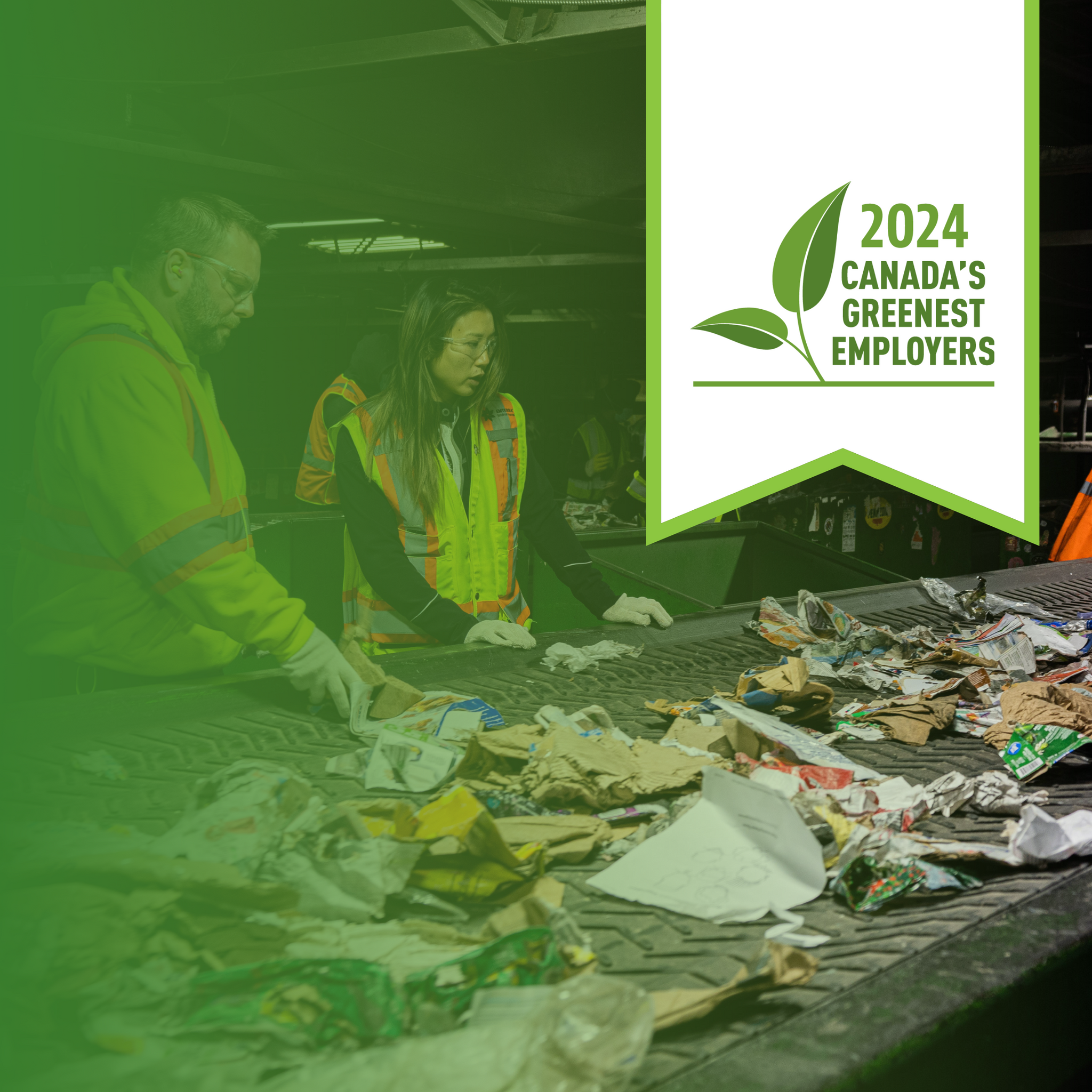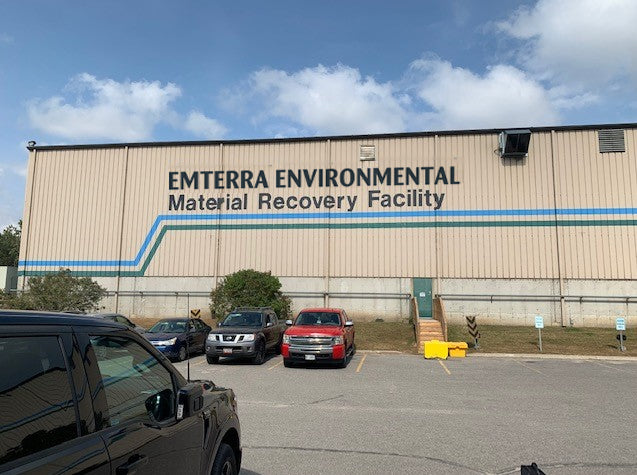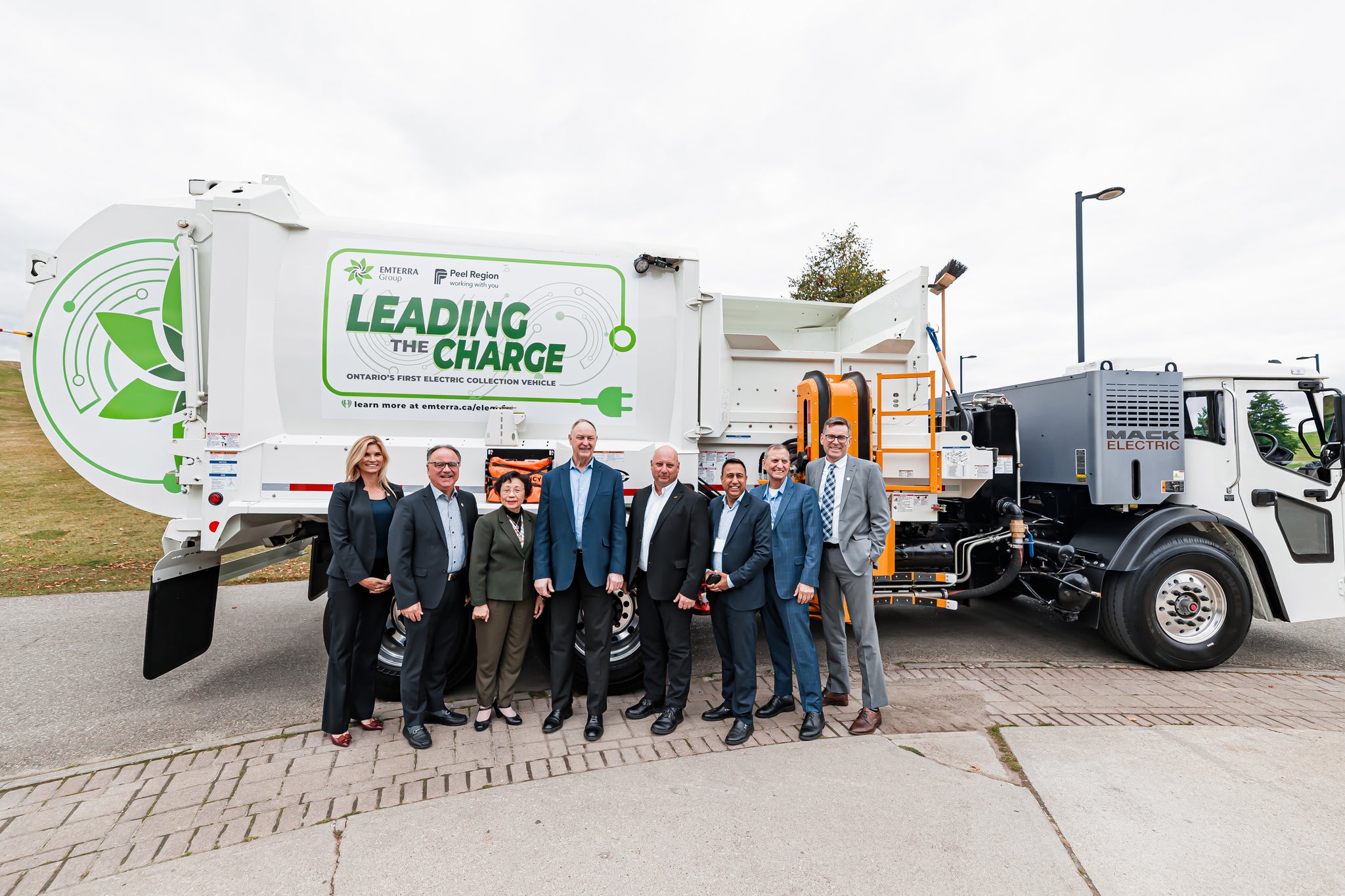Impressive volume for curbside collection

Local response to curbside recycling has been strong, those involved with it say. Tim Teeple, general manager of Emterra Environmental, indicated surprise at the amount of material that residents have put into their green carts.
Teeple estimated on April 16, the date of the most recent collection, that staff had already collected between 11 and 12 tonnes since the program started. "It's so good to see," he said after Emterra staff organized a short trip in the recycling truck for an Eagle reporter.
Mayor Brian Gerow said town officials have received "nothing but positive" reactions.
"People are thrilled with single-stream recycling," Gerow said. It's "so easy to do and it's taken a lot of stuff out of our landfill," he said. He thinks the convenience - setting out carts at the edge of the street rather than taking it to bins at Wheatland Regional Centre, as many people used to do - has increased the amount of recycling that people do.
"I've seen it in our own household now," Gerow said. "Every item's checked for recycling, everything. There's no cutting corners." Gerow suggested to Teeple that the firm post more information on acceptable materials on its website, saying he'd wondered if the plastic liner from a cereal box was acceptable.
A list of such questionable items with "yes" or "no" indications would help people make sure they were putting only recyclable materials into the carts, he said. Teeple agreed it was a good idea.
Emterra bought the truck used to pick up material new last year, Teeple said. Its automated loading system has existed for about 10 years and has been improved over that time, he said. Emterra has been using it "in different applications probably about the last five years or so," Teeple said.
Driver Jack Lapsiuk operated joysticks mounted on a large console to his right to extend flat, yellow grabber arms on either side of carts. The arms reach a maximum distance of about five feet at a 90-degree angle to the truck, pick up the cart and lift it over a front-mounted container called a Curotto-Can. The operator can turn the cart upside-down over the left side of the container and move it toward the sidewalk to ensure it empties evenly and fairly low to the ground.
"This is important," says an Emterra document, "because when carts are overloaded the excess often spills before the cart can be dumped." Lapsiuk would empty six or seven carts into the container, then operate a hoist to take it up and over the cab and overturn it to drop the material into the truck box, capable of holding 40 cubic yards, according to Emterra.
A compactor then crushes it in with the rest, at 28,000 pounds per square inch, Lapsiuk said, for about 20 seconds to compact it. "If it's windy I wouldn't put that many (emptied bins) in," he said. "It would all fly away." He added that the compactor especially helps when people don't flatten cardboard boxes.
In some cases, the operator must approach a cart at an angle if it's left in front of a parked car, instead of stopping parallel to a bin when nothing obstructs the arms' paths.
Meanwhile, in spite of queries from some businesses, the Public Works Committee decided not to recommend recycling services for them in addition to the town's residential arrangement with Emterra, committee chairman Tim Askin said at the April 20 council meeting. Businesses are being advised to arrange for pickups by Emterra, Wheatland Regional Centre if it accepts a firm's recyclable material, or another recycling firm.



